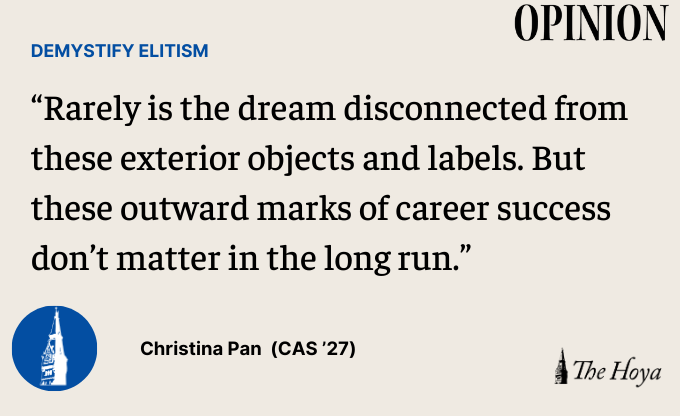Nothing feels better than a late-night walk through the Georgetown neighborhood.
As twilight turns to dusk, people are settling in for the night. Although a few college students may still be bobbing up and down the streets, the rest of the neighborhood keeps to itself in quiet contentment.
As the hours pass, the dark canvas of the night takes over, leaving only a few streams of light peppering the neighborhood. Taillights trailing off in the distance; phones in the hands of people about to call home; the soft glow of the TV through a window.
On my night walks, I’ve noticed that the majority of the light in the Georgetown neighborhood comes from inside apartments and townhouses.
With many leaving their blinds open and lights on, I sometimes glance inside these apartments, letting my imagination slip away. I think I’m looking at shops instead of homes, one after another, embellished with all the best sorts of luxuries.
Once, through the window, I saw a room emulating an observatory, complete with a massive dome ceiling and telescope. Other times, I’ve seen beautiful lamps in the shapes of lotuses and seashells and apartments full of curated art, antiques and collectibles.
Strangely enough, whenever I glance into one of these windows, I see the room with all its expensive decorations — but without a person in sight. It often feels like no one is living there.
For the longest time, I’ve told myself that my goal was to be able to afford a similar life to the ones I’ve longingly stared at through the windows.
Part of my motivation for coming to Georgetown was to grant myself this idealized projection of the future. If I did undergrad right, got a job at a top company and expanded my career, I figured that I should be able to live like the people I had so long been looking at from outside the window. Only then, I told myself, would I be truly satisfied.
But I’ve realized that this longing for something — for the hazy light in the distance that manifests itself in the desire for material objects and status — doesn’t just stop at apartments.
Most dream careers involve dream objects and dream things. My friends on the pre-med track talk about seeing themselves in their white coats and having people address them by the title of “doctor.” Future bankers and consultants see their futures in crisp suits, with the words “Vice President” or “General Manager” stamped under their names. Rarely is the dream disconnected from these exterior objects and labels. But these outward marks of career success don’t matter in the long run.
At Georgetown, these desires are amplified by our pre-professional culture and ruthless ambition to succeed. But if the success in my future is defined by the things I own or the company I work at, I’m not sure I buy into it.
The more I walk through the neighborhood at night, the more I feel a tinge of pity, as opposed to envy, for the ever-absent owners of these homes. As my moonlit treks continue in the future, I hope to see someone living in one of those windows instead of the ghostly remainder of a few materialist objects scattered around a house.
Following my nighttime walks, I return to my humble little dorm — a far cry from the splendor of Georgetown townhouses — where my greatest luxury is my small pepper plant, and the only overhead lights I have are the harsh ones that remind me of a prison cell.
But in my dorm, I see personalities shining through other windows. There are always students laughing, cooking together, playing games and having a good time — none of the sterile opulence and spectral materialism in the neighborhood.
Sometimes I think about what I would do if all of my possessions vanished in a fire or if one of those apartments that I’ve watched for so long somehow ceased to exist. Or, perhaps, if I was plucked out of my current existence in my corner of the universe and placed in a different world where my experiences, education and connections didn’t matter.
Quite honestly, I don’t know how I would approach that situation.
But all of this walking and watching has helped me realize that my longing for that cushy, materialist life I saw in the window is a dream that will never be fully realized and something I no longer want. Every object is finite and temporary, and so are the lifestyles attached to them.
Christina Pan is a first-year in the College of Arts and Science, this is the first installation of her column, Demystify Elitism.















Soobin • Oct 21, 2023 at 9:33 am
The line, “I feel a tinge of pity, as opposed to envy, for the ever-absent owners of these homes” truly encapsulates this haunting piece as a whole. You have such a way with your words that they simultaneously create a warm, but distant, atmosphere—perhaps just like the Georgetown townhouses themselves. It made me think a lot about my own material wants and if I’ve been chasing my dream incorrectly. Overall, very lovely.
Christina • Nov 6, 2023 at 10:35 am
Thank you, Soobin!